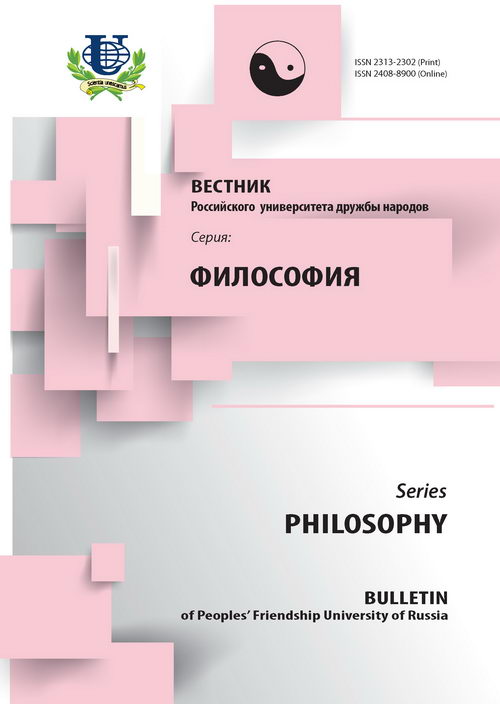Philosophical prortotypes of “Te Chinese dream”
- Authors: Lukianov AE1
-
Affiliations:
- Institute of Far Eastern Studies, Russian Academy of Sciences
- Issue: No 4 (2015)
- Pages: 50-59
- Section: Articles
- URL: https://journals.rudn.ru/philosophy/article/view/11596
Cite item
Full Text
Abstract
The article analyzes philosophical prototypes of modern concept “The Chinese dream” - great revival of the Chinese nation. The main subject is Confucian model - xiao kang (small prosperity), which is represented in “Shi jing” (Book of Poetry), “Li ji” (Book of Rites) and Taoist model of the Dream, which is represented in “Le zi”. Results show that the ancient concept “xiao kang” is based on spiritual archetype of five-and-five constancy, Taoist model of the Dream is based on mechanism of a palingenezis - spiritual immersion in a first-born nature, moral clarification and appeal to reality. The author puts forward two new provisions in sinology: а) the ancient concept of “xiao kang” isn’t an utopia, “xiao kang” was realized during the transition of archaic society “da tong” to the civilization; b) at a present historical stage at end by 2021 of creation of “xiao kang” society (average prosperity) and during the way to “da tong” society will be changed ideal subjects of Confucianism and Taoism, the noble husband “jun zi” will delegate the creative powers to the Taoist great person (at least they will add each other). The author assumes great revival of Taoism basing on a mirror historical paradigm of interface “da tong” - “xiao kang” × “xiao kang” - “da tong”.
Keywords
About the authors
A E Lukianov
Institute of Far Eastern Studies, Russian Academy of Sciences
Email: hphilosophy@mail.ru
Center of comparative studying of civilizations of Northeast Asia
References
















